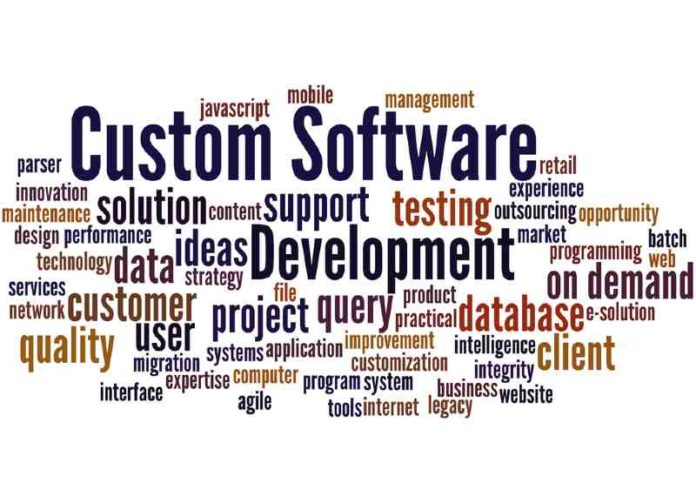For small and medium businesses (SMBs), technology is one of the most important factors in keeping up with this digital age while saving time and money.
SMBs have long understood the benefits of automating business processes using the software. The new persisting debate, however, is between automation through off-the-shelf software vs. building custom software for business processes.
Firstly, let’s understand the exact difference between the two.
How exactly does off-the-shelf software differ from custom software?
Off-the-shelf software is software meant for specific business processes that are common for any and all businesses that install it. There is no personalization in case of off-the-shelf software.
Custom software is built specifically for the business, tailored as per the processes that the business follows. So, for instance, you might subscribe to off-the-shelf software for your company’s CRM purposes or you can build bespoke custom software to nurture and manage your leads as per your method.
Here are a few things you might need to consider before debating what your business needs i.e. off-the-shelf software or custom software tailored to your business processes?
- The complexity of your business processes.
- The aspects of your business that require automation through software.
- Are the processes that you are following different from standard industry processes? Would you require any customizations? E.g. integrating marketing and sales procedure into a single platform with detailed, custom reports.
- What is your budget?
- Is there any off-the-shelf software that will fulfil all your requirements?
- What are the security standards that you need to follow? Will the off-the-shelf software provide these standards?
Weighing in the pros and cons of building a custom software might further help your decision in terms of whether or not would you wish to build custom software for your business.
Pros of building custom software
- Easy-to-use
Custom software is built tailored to your requirements. Hence, the processes are in line with the processes that you follow within your organization. This makes custom software relatively easy to use post a simple orientation session. You can streamline activities within your organization in tune with your software.
- Security
Cybersecurity has been one of the most common concerns for SMBs. According to the 2018 State of Cyber Security in Small and Medium Size Businesses Report by Keeper Security, 67% of respondents faced cyber-attacks in 2018. As the overall system is personalized to your business needs, it is also relatively more difficult to hack than an off-the-shelf system. Businesses can take advanced security options with custom software such as adding biometrics configuration for access.
- Scalability
Growth is imminent in SMBs. The software functionality can grow along with the business. Custom software can be scaled up or down as per your requirements. You can add or remove features as per your dynamic business requirements.
- Integrated data
You can integrate data from multiple departments easily in case of custom software. For e.g. the software can be built in a way where you can get an integrated report of your marketing and sales activities and can compare what is working and what isn’t, all in one place. Furthermore, you can also get custom, comprehensive reports of all the departments in the format that you deem convenient. It thus becomes easy to access and analyse data in order to strategize further.
Cons of building custom software
- Initial costs and time
Off the shelf, software cost relatively low in terms of the initial set up cost. In the case of software, SMBs might need to incur a higher cost in terms of development as the software is entirely customized. The additional cost of support and regular maintenance might also raise the costs a little. But it is worth it considering the benefits custom software provides.
- Specific skill-set
Custom software is built using the technical skill-sets and frameworks that best suits your requirements. Hence, in case SMBs wish to maintain it in-house, they may require hiring an in-house team with specific skill-sets to maintain the same.
- Regular updates
While relatively easier to maintain and scale up, regular maintenance is necessary for custom software. Off-the-shelf software upgrades its services with changing norms. For custom software, SMBs have to either get it done through support or through their in house team. For e.g. you might need to upgrade your data storage and privacy policies with changing data norms such as GDPR.
There are a few offside to building custom software for SMBs. However, when you weigh the cons against the pros, building custom software can overall be worth it in terms of the growth potential and the convenience it provides.
It is upon you to understand what exactly your business needs, what your budget allows and how you can build an affordable and efficient custom software considering those aspects.
Hardik Shah works as a Tech Consultant at Simform, a leading custom software development company. He leads large scale mobility programs covering platforms, solutions, governance, standardization, and best practices. @hsshah
Software stock photo by serato/Shutterstock







